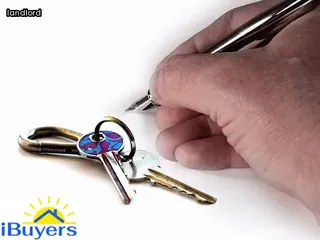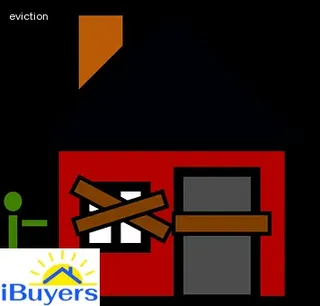When it comes to navigating Texas law on abandoned property, understanding what constitutes abandonment of property is key. Legally, a tenant is considered to have abandoned the property when they vacate without notice and fail to pay rent.
Additionally, when a tenant leaves behind personal belongings or furniture, this can also be considered an indication of abandonment as long as the landlord has attempted contact with the tenant. Furthermore, if a tenant has not been seen on the premises for an extended period of time, this too can indicate property abandonment according to Texas law.
State regulations require that a landlord must make reasonable efforts to contact the tenant before considering their property abandoned; however, in some cases landlords are able to legally dispose of the items left behind.

When tenants in Texas leave without a written agreement, the rules for handling their abandoned property can differ significantly. Landlords must adhere to the state's landlord-tenant code, which outlines the process of how landlords should handle abandoned items.
In many cases, landlords are able to immediately take possession of possessions that were left behind, but this is only allowed when there is no dispute or if the tenant has waived his or her rights. Additionally, any items that a tenant might have paid for such as furniture and appliances must be accounted for and may not be taken by the landlord unless they have been abandoned with no chance of being reclaimed by the tenant.
If a landlord wishes to dispose of an item that was left behind by a tenant without a written agreement, they must follow specific procedures such as providing written notice before disposing of it. Furthermore, landlords need to pay special attention to security deposits and refunds when dealing with tenants who do not have written agreements in place.
Understanding these regulations is key for landlords in order to avoid any potential legal issues involving abandoned property when tenants move out without a written agreement.
When a tenant leaves without reclaiming their property, Texas law can be confusing. It is important to understand the legal obligations of both the landlord and the tenant involved in the process.
Landlords must first determine whether or not the tenant has abandoned the property and then take action to protect their rights while preserving any remaining property. They should contact local law enforcement to document that they have taken possession of any items left behind.
Depending on the value of the items, landlords may need to file an inventory list with their local county clerk's office or dispose of them according to state regulations. Landlords must also inform tenants of their right to reclaim any abandoned property within a certain timeframe, typically 30 days after vacating.
If a tenant does not claim their items within this period, landlords are able to sell or donate them in accordance with state laws. It is important for landlords to document all steps taken during this process in order to ensure compliance with Texas law and protect themselves from potential legal action from former tenants.

Navigating Texas law on abandoned property and what to do when tenants leave can be a daunting task for landlords. Working with a landlord-tenant attorney is an effective way to ensure that all legal requirements are met, as well as to protect the rights of both the tenant and the landlord.
A landlord-tenant attorney can provide assistance in understanding specific state laws, such as how much time a tenant has to reclaim abandoned property and if any notice needs to be provided before disposing of it. They can also help draft documents like rental agreements, security deposit forms, notices to vacate, and other documents necessary for landlords and tenants.
In addition, they can offer guidance to tenants on their rights regarding abandonment of property or evictions. Furthermore, a landlord-tenant attorney can advise on potential liabilities concerning abandoned property or unpaid rent that may arise for either party during the process.
With the help of an experienced lawyer familiar with Texas law on abandonment issues, landlords have access to the resources needed to ensure smooth transitions when tenants move out without leaving behind any unresolved matters.
As a tenant in Texas, it is important to understand the laws surrounding abandoned property. Knowing your rights is paramount for tenants who have been left with an empty home due to their former tenants leaving without notice.
Most of these laws can be found in sections 92 and 93 of the Texas Property Code which discuss the landlord’s responsibility in terms of abandoned property. Under these sections, landlords cannot automatically enter a tenant’s home or take possession of their belongings if they leave without notice.
Furthermore, if personal items are left behind, it is up to the landlord to store them for at least 60 days before disposing them. If there are any questions about what a tenant can do when their former tenants leave without vacating, they should consult with an attorney who specializes in Texas law on abandoned property.

When a tenant abandons property after an eviction, Texas law has some specific rules that landlords must adhere to. Before any property can be removed from the premises, the landlord must first give written notice to the tenant of their intent to dispose of the abandoned items.
The tenants then have thirty days to reclaim the property before it can legally be disposed of by the landlord. If the tenant should return during this time period and claim their belongings, it is the responsibility of the landlord to store them in a secure location until they can be collected.
In some circumstances, if no one claims their property within the given time frame, landlords may also be allowed to remove these items from the premises and dispose of them without further legal action. It is important for landlords in Texas to understand these laws and make sure they are following all applicable regulations when dealing with abandoned property left behind by tenants.
When tenants are evicted in Texas, the landlord is responsible for the personal property that the tenant leaves behind. Texas law requires landlords to store and secure any abandoned personal property left by a tenant on or off-site.
This means that landlords must protect the tenant's belongings from being damaged or stolen while also allowing them to be retrieved by the tenant if they decide to come back and get their items. If a tenant fails to retrieve their abandoned property after being given notice, then the landlord may sell it and use the proceeds to cover any unpaid rent, late fees, or other associated costs.
It is important for landlords to be aware of their rights when dealing with abandoned personal property because not following state laws can result in serious legal consequences. Landlords should also make sure that they follow all necessary procedures before disposing of any of the tenant's belongings and document everything throughout this process.

In Texas, landlords and tenants have legally binding requirements for storage of personal items left behind when a tenant vacates. Landlords must store the property for at least three weeks, giving the tenant an opportunity to retrieve it.
If the tenant does not claim the items within the allotted time frame, then it is considered abandoned property and landlords can dispose of it as they wish. Property that has a monetary value must be stored in a public area, such as a storage unit or garage, while items with no value may be disposed of immediately.
In terms of liability, landlords are responsible for any damage that occurs during storage and tenants are responsible for any costs associated with retrieving their belongings. It is important to note that landlords may not keep any portion of abandoned property as payment for unpaid rent or damages; doing so is illegal in Texas and can result in serious consequences.
Warehousemen are not allowed to take possession of tenants' belongings under the law in Texas when tenants have abandoned their property. It is important for warehousemen to understand this law, as it affects their ability to store and maintain abandoned property.
This law applies to all warehouses across the state and includes any type of storage facility. Warehousemen must be aware of the rights of tenants and the consequences for taking possession of property that has been left behind.
In addition, they must ensure that they are in compliance with all laws related to abandoned property, including those governing tenant rights and responsibilities. If a warehouseman takes possession of such items without permission, they may face legal repercussions such as fines or even jail time.
Tenants should also be aware of their rights and obligations if they leave behind belongings at a warehouse or storage facility in Texas. Knowing these laws will help them protect their possessions and avoid potential legal issues that could arise from failing to properly claim or abandon their property.

When tenants leave behind personal property in a rental home or building, it is important to understand the implications of having a warehouseman hold the property. In Texas, there are strict laws and regulations that dictate how landlords must handle abandoned items.
Depending on the nature of the property, a landlord may be required to provide written notice to the tenant before selling or disposing of their goods. Furthermore, if a third party is hired to store and manage any abandoned items, they must adhere to specific requirements such as obtaining a license from the Texas Department of Agriculture and keeping detailed records for each item stored.
Additionally, warehousemen are legally obligated to keep all personal property safe and secure until either the tenant reclaims it or it is sold at auction. It is important for landlords and warehousemen alike to be aware of these legal obligations in order to remain compliant with Texas law when dealing with abandoned property.
If you have property that has been stored in a warehouse, reclaiming it can be complicated. Knowing the Texas law regarding abandoned property is essential when it comes to retrieving your items.
It is important to understand the process and what steps you need to take to ensure a successful claim. To begin, it is best to contact the warehouseman who has possession of your items as soon as possible.
They should provide information about when and how you can reclaim your possessions. Be sure to bring any identification or proof of ownership that is required for the retrieval.
Additionally, if an item was left behind by a tenant, it may be necessary for you to file a claim with the county court where the tenant resided in order to legally obtain ownership of those items. In some cases, there may be fees associated with this process so plan accordingly before you proceed.
Ultimately, being prepared and understanding the laws surrounding abandoned property in Texas will help make reclaiming your possessions from a warehouseman simpler and more successful.
When tenants leave their belongings behind in Texas, the landlord must take specific steps to handle the abandoned property left behind. Texas law requires landlords to store any items left behind for at least 15 days and notify the tenant of the property’s presence by sending out a letter or notice.
If after 15 days, the tenant has not responded and claimed their items, they are considered abandoned property. The landlord then has two options: sell or dispose of the items, or store them at their own expense.
In either case, all proceeds from the sale of any abandoned property must be sent to the county comptroller’s office where it will remain until claimed by its rightful owner. To ensure compliance with Texas law, landlords should document all efforts taken to notify tenants of their abandoned property and keep records of how any proceeds were handled.

When a tenant abandons property in Texas, there are specific steps that must be taken. The first step is to contact the local law enforcement agency and file a report for abandoned property.
This document will serve as proof that the tenant has left without fulfilling their obligations under the lease agreement. Once the report has been filed, landlords must send written notice to the tenant's last known address informing them of their abandonment of the property.
If no response is received within three days, landlords may then enter the premises and take possession of any personal items left behind by the tenant. Any remaining items should be stored offsite until a final determination is made regarding ownership.
Landlords must also make efforts to recover any unpaid rent or other costs associated with repairs or cleaning needed due to the tenant's departure. If unable to collect these funds, they may pursue legal action against the tenant in small claims court if necessary.
Ultimately, landlords must follow all applicable Texas laws when dealing with abandoned property in order to protect themselves from potential legal issues down the line.
In Texas, property is considered abandoned if it is left for an extended period of time without any indication that the tenant intends to return. The length of time before a property can be deemed abandoned varies from case to case, but generally depends on how long the tenant has been absent and whether or not they were paying rent.
If tenants are actively paying rent, but have been absent for more than one month without communication with the landlord, then the landlord can assume that the tenant has abandoned the property. It is important to note that a landlord must still go through the legal process to obtain possession of their property before it can be deemed legally abandoned.
Additionally, landlords should always make sure to follow all applicable laws and regulations when dealing with tenants who have left their property behind. By understanding the timeline for a property to be considered abandoned in Texas, landlords can better prepare themselves in order to protect their rights when tenants leave behind possessions they no longer wish to keep.
In Texas, the statute of limitations on abandoned property is four years. The state's laws stipulate that if a tenant leaves personal property behind after vacating rental property, the landlord must wait four years before disposing of it.
This means that the landlord must not immediately discard any belongings left behind by the tenant and has an obligation to store them for at least four years. During this time, landlords should make reasonable efforts to contact the tenant and arrange for them to retrieve their belongings.
If no contact is made with the tenant during this period, then the landlord may dispose of or sell the abandoned property after four years. It is important for both landlords and tenants to understand their rights and obligations regarding abandoned property in order to ensure that all parties are protected under Texas law.